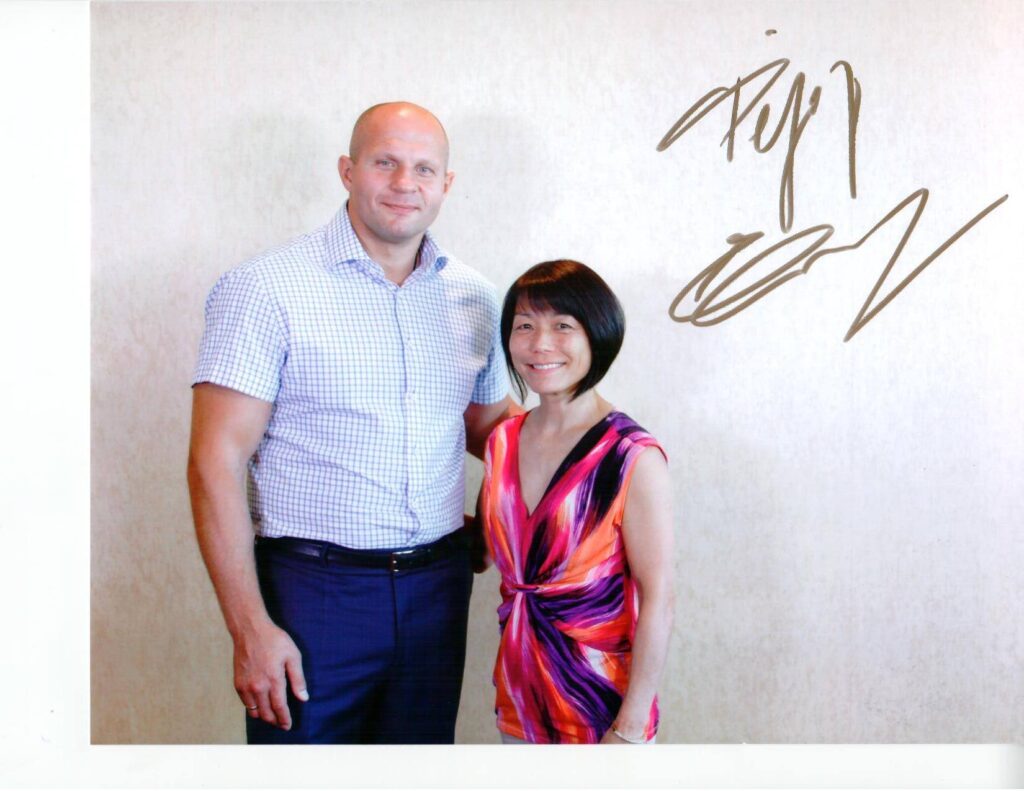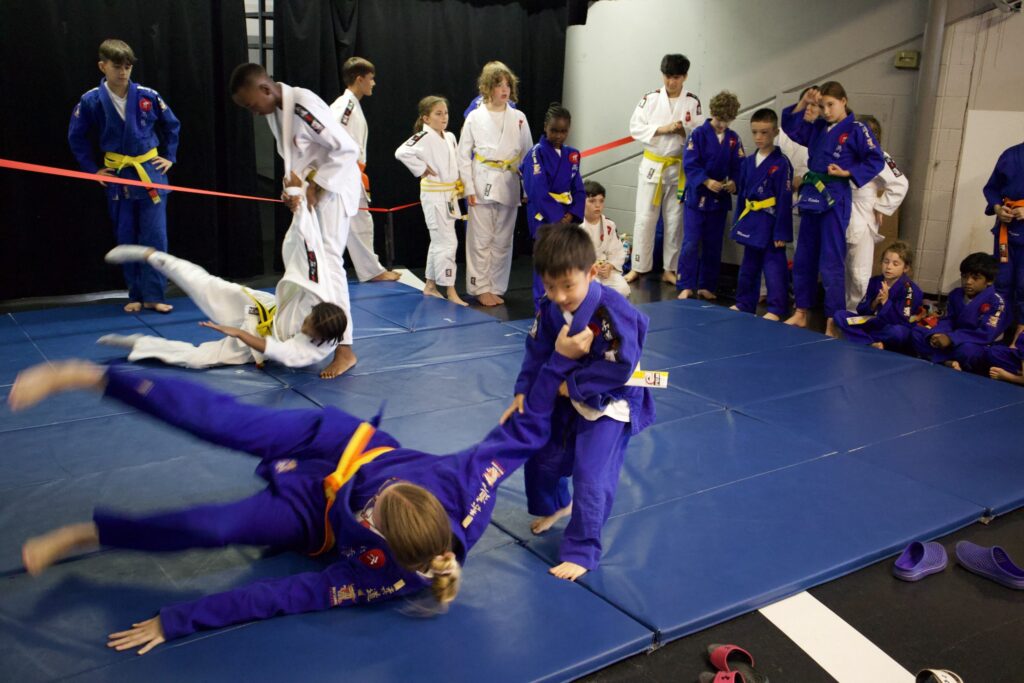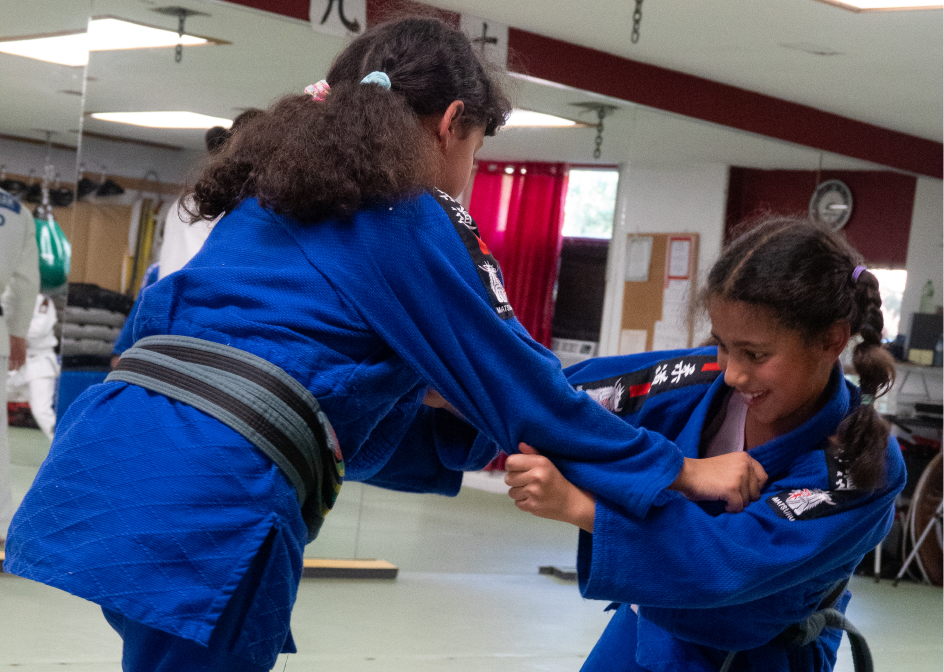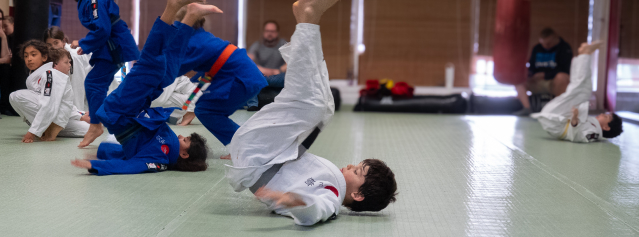Menu
Close
Menu
Close

Many parents search for activities that will help their children grow and thrive. Martial arts training stands out as an excellent choice for building confidence in kids of all ages. Martial arts provides children with a structured environment where they can set goals, overcome challenges, and celebrate achievements, all of which contribute to developing lasting self-confidence.
We’ve seen countless shy children transform after just a few months of martial arts training. The combination of physical activity, mental discipline, and social interaction creates the perfect environment for personal growth. Children learn to take hits and bounce back, developing resilience that extends beyond the dojo and into their everyday lives.
Martial arts provides children with a structured path to achievement through belt systems and skill progression. This journey builds self-worth as children master techniques and overcome challenges.
Martial arts training creates a unique environment where children earn recognition through dedicated effort. Unlike team sports where a child might feel lost in the group, martial arts emphasizes individual progress. Each child follows their own path at their own pace.
The belt system provides clear, achievable goals that build confidence with each advancement. When a child moves from white to yellow belt, they experience tangible proof of their growth.
Studies show that this kind of structured achievement directly impacts how children view themselves. As they master new techniques, we see their posture improve and their voices become stronger.
Martial arts empowers children by teaching them to believe in themselves. This self-belief transfers to other areas of life, including school performance and social interactions.
In judo, karate, sambo and other martial arts, children receive immediate feedback on their efforts. Instructors acknowledge both small improvements and major achievements.
Belt ceremonies become important milestones that families can celebrate together. These events mark progress in a child’s journey and reinforce their sense of accomplishment.
Unlike traditional sports, martial arts gives children achievable goals that build confidence step by step. We encourage parents to recognize these achievements at home as well.
Progress tracking methods used in our martial arts schools include:
These recognition systems provide children with concrete evidence of their capabilities, building a foundation of self-esteem that lasts well beyond their training years.
Martial arts training provides children with essential life skills that extend far beyond physical techniques. Discipline and respect form the foundation of martial arts practice, creating valuable traits that serve children throughout their lives.
Martial arts instructors serve as powerful role models who guide children toward self-discipline. Unlike school teachers, these instructors combine authority with mentorship to help students develop inner control. In the dojo, children learn to follow specific protocols and consistent practise habits that strengthen their self-regulation skills.
Instructors use belt systems and advancement requirements to teach children about working toward long-term goals. This structured approach helps children understand that progress comes through dedication and effort.
We’ve observed that children respond positively to clear expectations. When instructors maintain firm but fair standards, students learn to hold themselves accountable for their actions both on and off the training floor.
Respect is woven into every aspect of martial arts training. Children learn to bow to their instructors, training partners, and even the practice space itself. These rituals aren’t empty gestures but meaningful expressions of gratitude and acknowledgment.
Martial arts help children develop strong social skills by teaching them how to work with classmates and show respect to others. Students learn to:
Through partner exercises, children learn to respect different skill levels and physical abilities. This cultivates empathy and consideration that extends to relationships outside the martial arts class.
We believe that when children understand the importance of respect in martial arts, they naturally apply these principles in school, at home, and in their communities.
Martial arts training offers children exceptional opportunities to develop their bodies while building confidence through physical achievements. The physical benefits extend beyond simple strength gains to include comprehensive fitness improvements and health benefits.
Children who practice martial arts experience significant improvements in their physical coordination and overall fitness. Regular training in disciplines like judo, sambo and karate helps develop core strength, balance, and spatial awareness. We’ve observed that these physical skills directly translate to greater self-confidence as children master new movements.
Martial arts training enhances several physical capabilities:
As children notice their bodies becoming stronger and more capable, they develop pride in their physical achievements. This creates a positive feedback loop where physical success drives greater confidence in other areas of life.
Martial arts provides an engaging solution to address childhood obesity through consistent physical activity. Unlike some traditional sports, martial arts offers physical challenges that can be modified for any fitness level, making it accessible for children of all body types.
A typical children’s martial arts class burns between 300-400 calories while building muscle and improving endurance. We’ve found that children who might feel self-conscious about their bodies in team sports often thrive in the individual progression model of martial arts.
The benefits include:
Children who struggle with weight issues often experience dramatic improvements in both physical fitness and self-image through consistent martial arts practice, building confidence that extends beyond the dojo.
Martial arts provide children with practical skills that extend beyond the training floor. These practices teach children how to stay safe while also developing their mental awareness of potential dangers.
Self-defence training is a core element of martial arts that gives children practical tools to protect themselves if needed. When children learn basic blocking, striking, and escaping techniques, they gain confidence knowing they have options in uncomfortable situations.
Tina Takahashi Martial Arts school focuses on teaching children that self-defence is always the last resort. The emphasis is on avoiding physical conflict whenever possible. This mindset helps children understand when and how to use their skills appropriately.
Martial Arts teach techniques that are specifically designed for children’s bodies and abilities. These age-appropriate methods allow even smaller children to effectively defend themselves against larger opponents if necessary.
Self-defence training also helps children overcome fears about potential threats. Rather than feeling helpless, they develop a sense of personal power.
Situational awareness is perhaps the most valuable safety skill martial arts develops in children. We teach children to be mindful of their surroundings and recognize potential dangers before they escalate.
Children learn to trust their instincts and identify warning signs in their environment. This awareness helps them avoid dangerous situations altogether.
Martial arts instruction emphasizes peaceful conflict resolution whenever possible. Children develop verbal skills to de-escalate tense situations without resorting to physical techniques.
Training sessions often include role-playing scenarios where children practice:
These conflict resolution skills transfer to everyday situations like school bullying or peer pressure. Through regular practice, children learn that true strength comes from making wise choices about personal safety.
Martial arts training offers children numerous benefits beyond physical skills. Parents often have questions about how these practices influence children’s development, appropriate starting ages, and the mental and physical impacts.
How do martial arts cultivate self-discipline in children?
Martial arts build self-discipline through consistent practice and clear expectations. Children learn to follow instructions and develop patience as they master techniques step by step.
The belt system provides tangible goals that encourage children to work hard and persist through challenges. They quickly learn that progress comes through regular effort, not just natural talent.
Instructors emphasize respect and self-control during classes, teaching children to manage impulses and emotions. This discipline extends beyond the dojo into school and home life.
What age is considered appropriate for a child to begin practicing martial arts?
Tina Takahashi martial arts programs accept children as young as 4-5 years old with age-appropriate modification to make training fun and accessible. These early classes focus on basic movements, listening skills, and simple coordination exercises.
Most children develop sufficient attention span and physical coordination for structured martial arts around ages 6. At this stage, they can better understand concepts like respect and teamwork.
Teenagers can start at any time and often progress quickly due to their physical development and cognitive abilities.
What are the key life lessons children learn from martial arts training?
Children in martial arts learn that perseverance leads to achievement when facing difficult techniques or sparring challenges. They develop grit by working through obstacles rather than avoiding them.
Respect forms a cornerstone of martial arts training, teaching children to value their instructors, peers, opponents, and themselves. This fundamental principle extends into all relationships.
Goal-setting becomes natural as students work toward belt promotions and skill mastery. They learn to break large goals into smaller, achievable ones, a valuable life skill that translates to other spheres of their lives.
What are the psychological advantages of martial arts for children?
Martial arts training significantly boosts confidence as children master new skills and overcome challenges. This confidence helps them handle peer pressure and assert themselves appropriately.
Children develop improved focus and concentration through practicing forms and techniques that require sustained attention. These mental skills transfer to academic performance and everyday tasks.
Martial arts provide healthy stress relief through physical activity in a structured environment. Children learn to channel emotions productively rather than suppressing them.
How does participating in martial arts affect a child’s physical health?
Regular martial arts practice improves cardiovascular fitness and builds full-body strength. Unlike some sports that focus on specific muscle groups, martial arts develop balanced physical capabilities.
Flexibility increases naturally through warm-up routines and movements specific to various martial arts styles. This reduces injury risk both in training and other physical activities.
Coordination and body awareness develop as children learn complex movements that integrate different parts of the body. These fundamental movement skills benefit children in all physical activities.
Why is martial arts a significant activity for childhood development?
Martial arts offers children opportunities for building positive self-esteem and finding community. Children feel valued within their training group while developing individual capabilities.
The structured progression of martial arts provides clear feedback on growth, helping children connect effort with improvement. This reinforces an internal focus of control.
Unlike many team sports, martial arts allows each child to advance at their own pace without comparison to peers. This makes it particularly beneficial for children who learn differently or struggle with other athletic activities.
For more information on how to get your child started today and enroll for a special two-week offer, please visit:



Hours of Operation:
Monday – Friday
8:00 a.m. – 8:00 p.m.
Saturday – Open Mats
2:00 p.m. – 3:00 p.m.
Recent Posts
Blog
The Beginner’s Guide to Starting Martial Arts: Essential First Steps for New Practitioners
Judo vs. Jiu-Jitsu: Understanding the Key Differences Between These Ancient Martial Arts
Why Martial Arts are Excellent for Child Discipline: Building Character Through Structure and Respect
How Martial Arts Teach Children Anti-Bullying Skills: Building Confidence and Self-Defence
Copyright © 2024 |
Tina Takahashi Martial Arts
Designed by
ElissDesign.com





